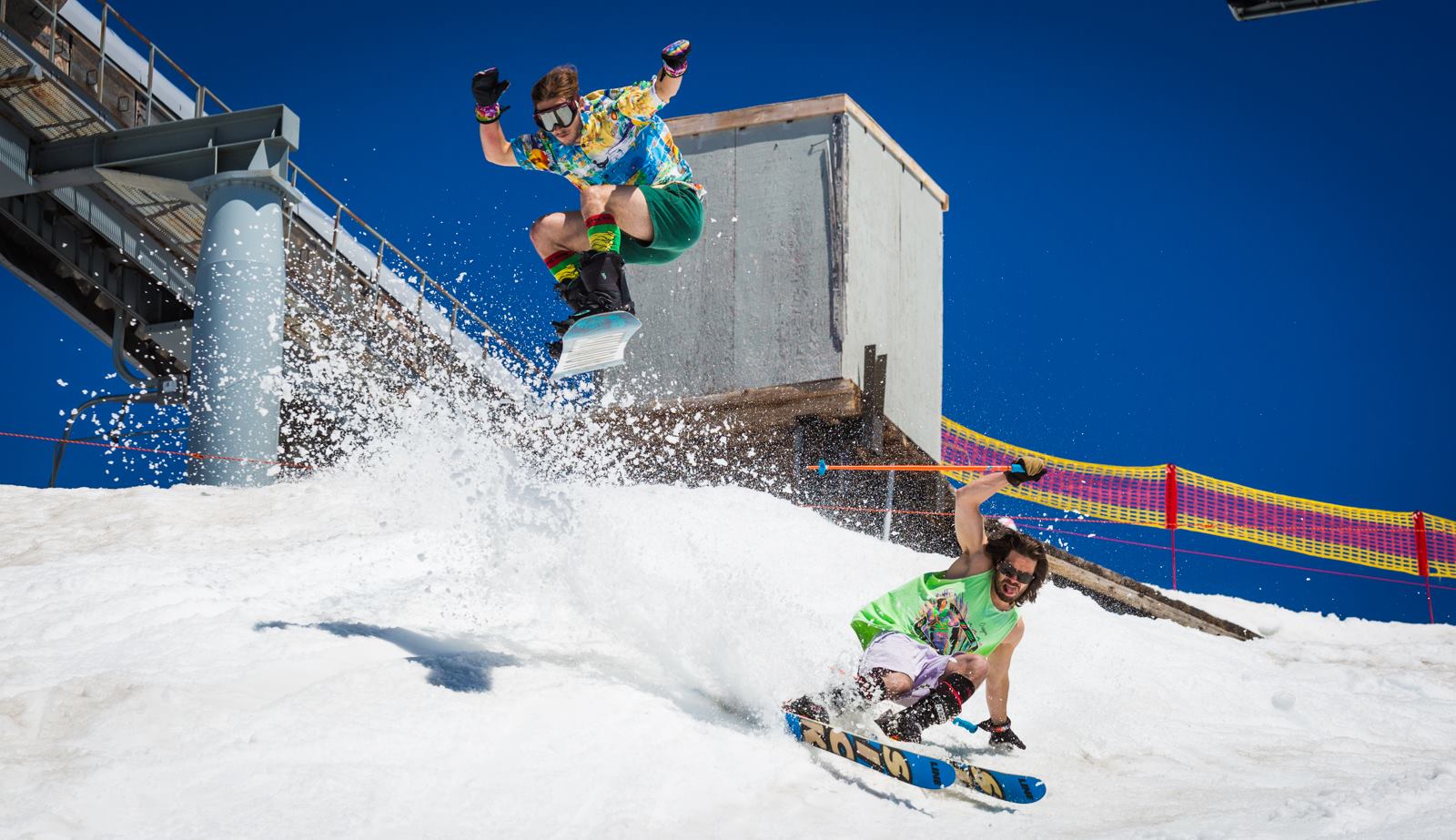
As winter turns into spring, many mountain enthusiasts begin to wonder where they can go to still ride the snow. Land use and wildlife restrictions force some resorts to close early, regardless of how much snow is still on the slopes. For the rest, several factors dictate how long they can keep the lifts turning: snowfall accumulation (base), ongoing weather conditions and snow preservation.
Historically, the resorts with higher elevations and a greater percentage of north facing terrain fair better. Based on the projected closing dates for this year, below are the resorts gunning for the longest ski seasons of the year.
#1 Timberline Lodge, OR
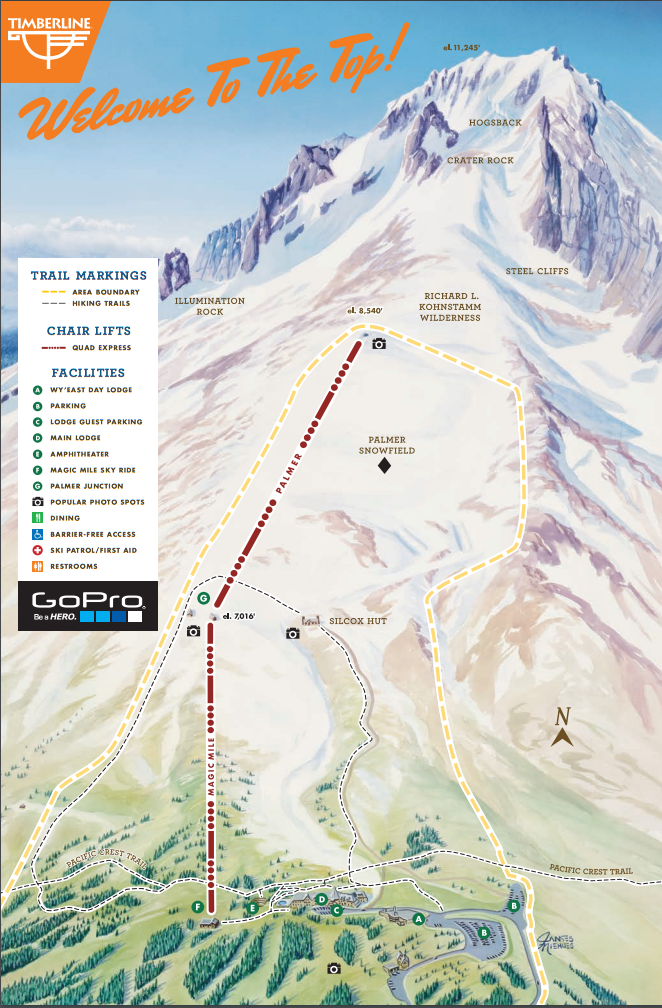
Located in the Pacific Northwest, Timberline provides the longest ski season in North America, with nearly year-round skiing. It resides atop a volcano, on the highest mountain in Oregon, Mt. Hood. The Palmer Express quad provides lift-served skiing to the Palmer Snowfield from June through September. To offset the intense summer sun on this west facing slope, rock salt is applied to the surface of the snow, making it firm and supportive for summertime skiing.
Projected closing date: September 20, 2017
Elevation base/summit: 4850 ft, 8,540 ft
North facing slopes: 0%
Base depth lower/upper: 230″
#2 Mammoth Mountain, CA

With it’s high altitude and abundance of north exposure, Mammoth has the right combination for excellent snow preservation.
Projected closing date: July 4, 2017
Elevation base/summit: 7,953 ft/ 11,053 ft
North facing slopes: 65%
Base depth lower/upper: 180″ – 320″
#3 Squaw Valley Alpine Meadows, CA
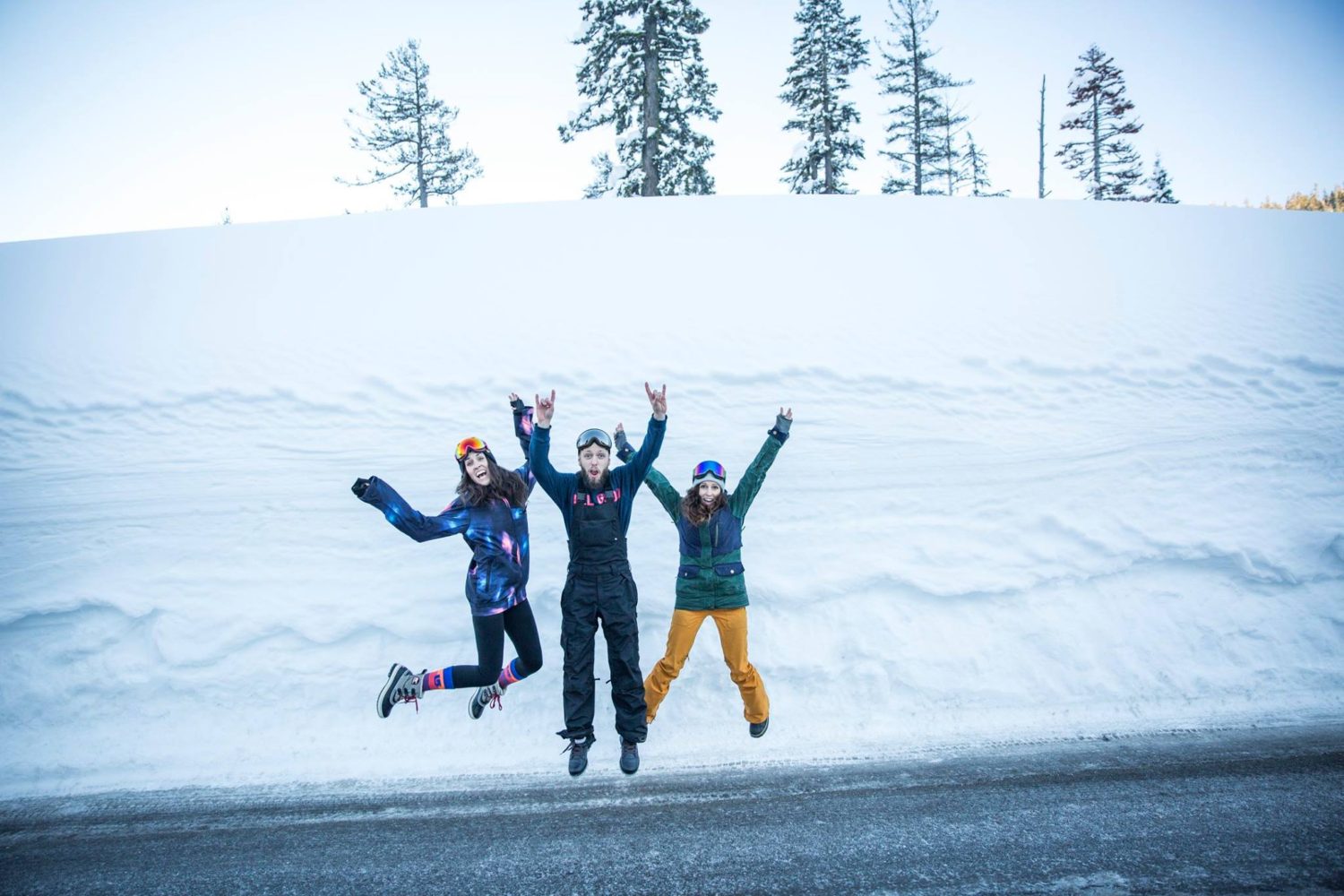
A representative from the resort today indicated that both Squaw Valley and Alpine Meadows will stay open as long as snow permits, with a tentative closing date of July 4 or even longer. There is an abundance of sunshine to be had here with 300+ days of cloudless, sunny skies.
Projected closing date: July 4, 2017
Elevation base/summit: 6,200 ft/ 9,009 ft
North facing slopes: 50%
Base depth lower/upper: 249″
#4 Arapahoe Basin Ski Area, CO
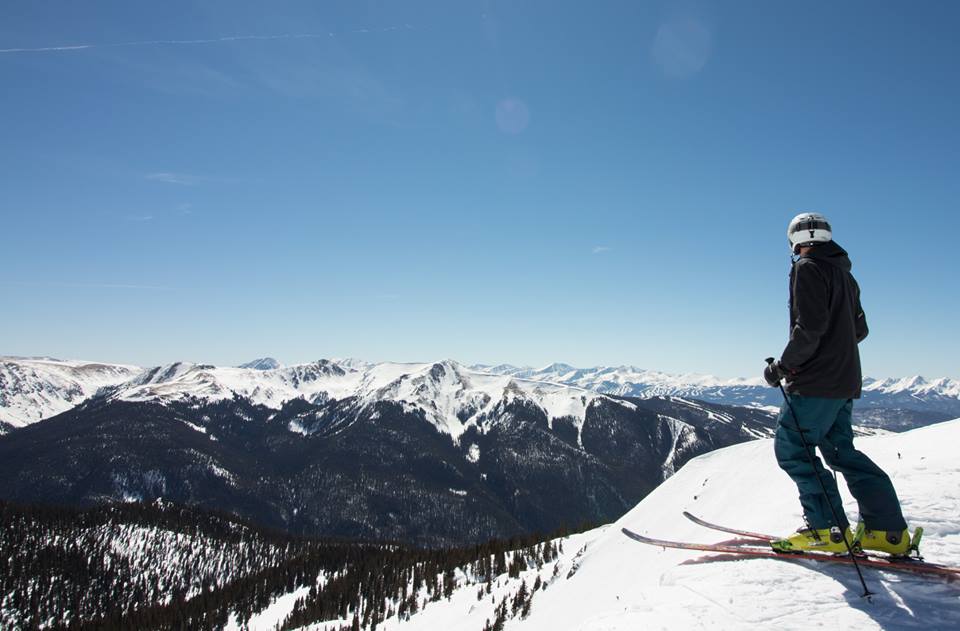
Arapahoe Basin holds down the top spot on this list for elevation and has an impressive percentage of the terrain with a north facing aspect. According to Zrankings, Arapahoe Basin has “the best snow preservation in North America.” Historically, March and April have been the snowiest months at this resort. An additional average of 29 inches in May support the lifespan of the ski season here and provides phenomenal spring skiing. A-Basin averages an impressive 233 days of skiing a year.
Projected closing date: June 11, 2017
Elevation base/summit: 10,780 ft/ 12,472ft
Slopes with north facing aspect: 55%
Base depth lower/upper: 69″
#5 Snowbird, UT
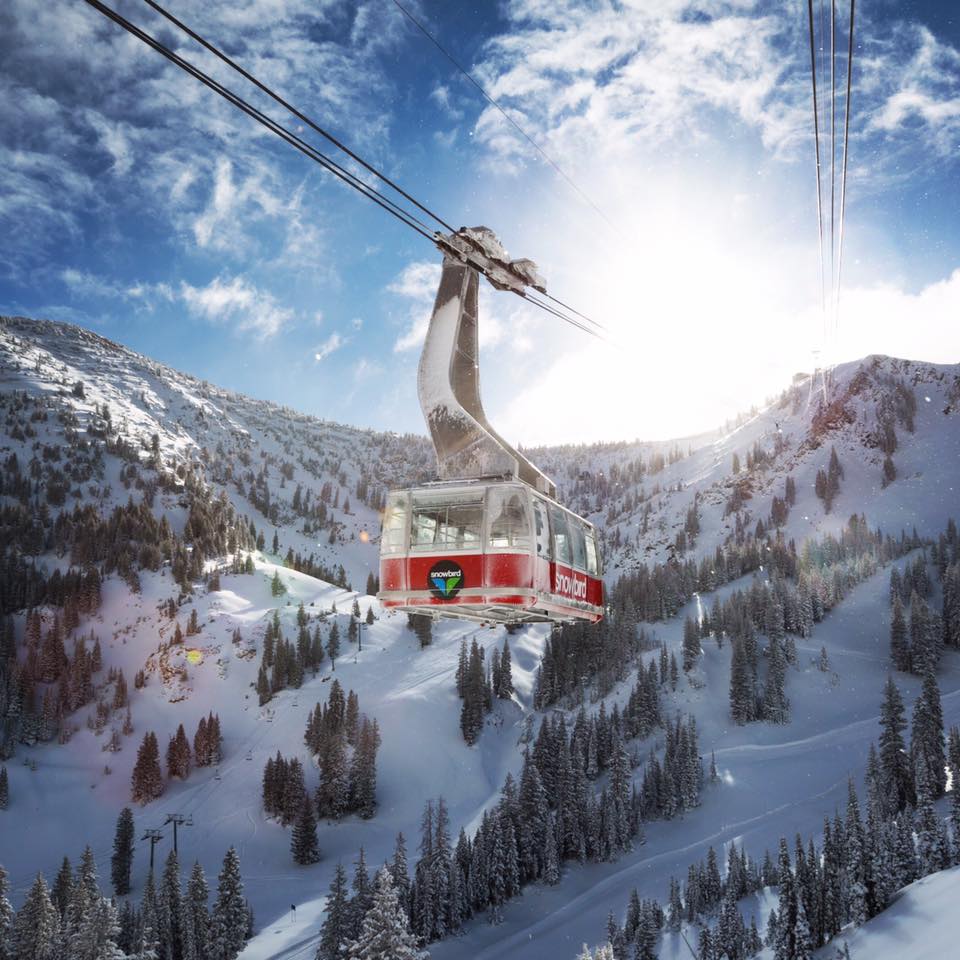
Snowbird has “relentlessly steep” terrain that requires significant snowfall to adequately cover the slopes. Their annual 450+ of the blower light powder does just that, and then some. The elevation here combined with a north facing aspect on many of the slopes helps preserve all that famous Utah powder deep into spring.
Projected closing date: May 28, 2017
Elevation base/summit: 7,760 ft/ 11,000 ft
North facing slopes: 50%
Base depth lower/upper: 143″
#6 Mt. Bachelor, OR
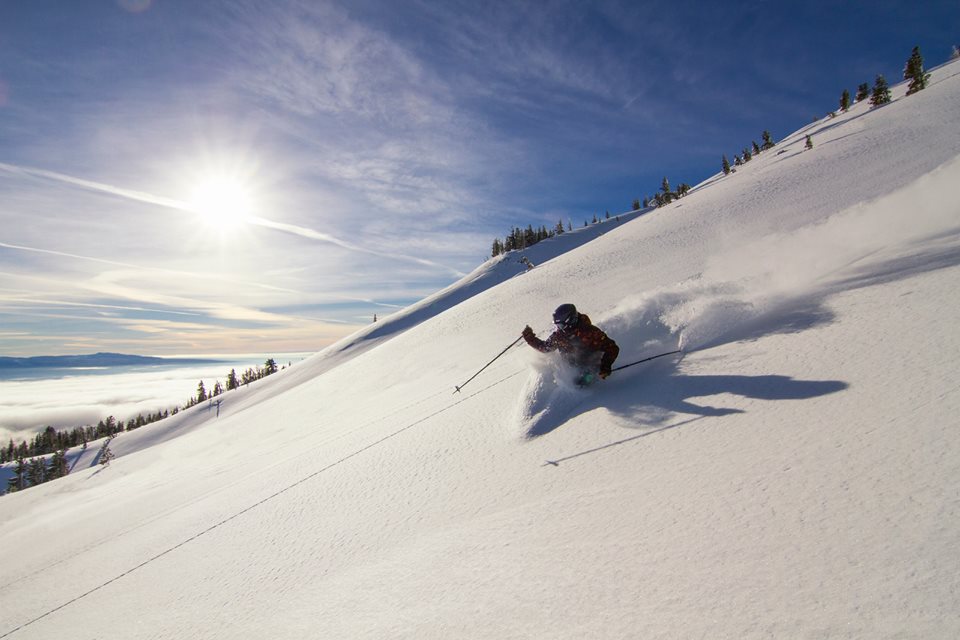
Sitting atop a volcanic cone summit at over 9,000 feet, Mt. Bachelor is home to the highest elevation in the Pacific Northwest. For spring time corn-snow conditions, this mountain consistently delivers.
Projected closing date: May 28, 2017
Elevation base/summit: 5,700ft/ 9,065 ft
North facing slopes: 55%
Base depth lower/upper: 133″
#7 Killington, VT
Killington is home to the East Coast’s largest ski resort as well as the mountain with the longest ski season in all of New England. The “Beast in the East” has been known to keep the lifts turning for 180 days a year. An impressive feat for any resort, let alone one with a modest mountain height, compared to others on this list.
Projected closing date: May 28, 2017
Elevation base/summit: 1,165 ft/ 4,241 ft
North facing slopes: 30%
Base depth lower/upper: 30″
#8 Sunshine Villlage – Alberta, Cananda
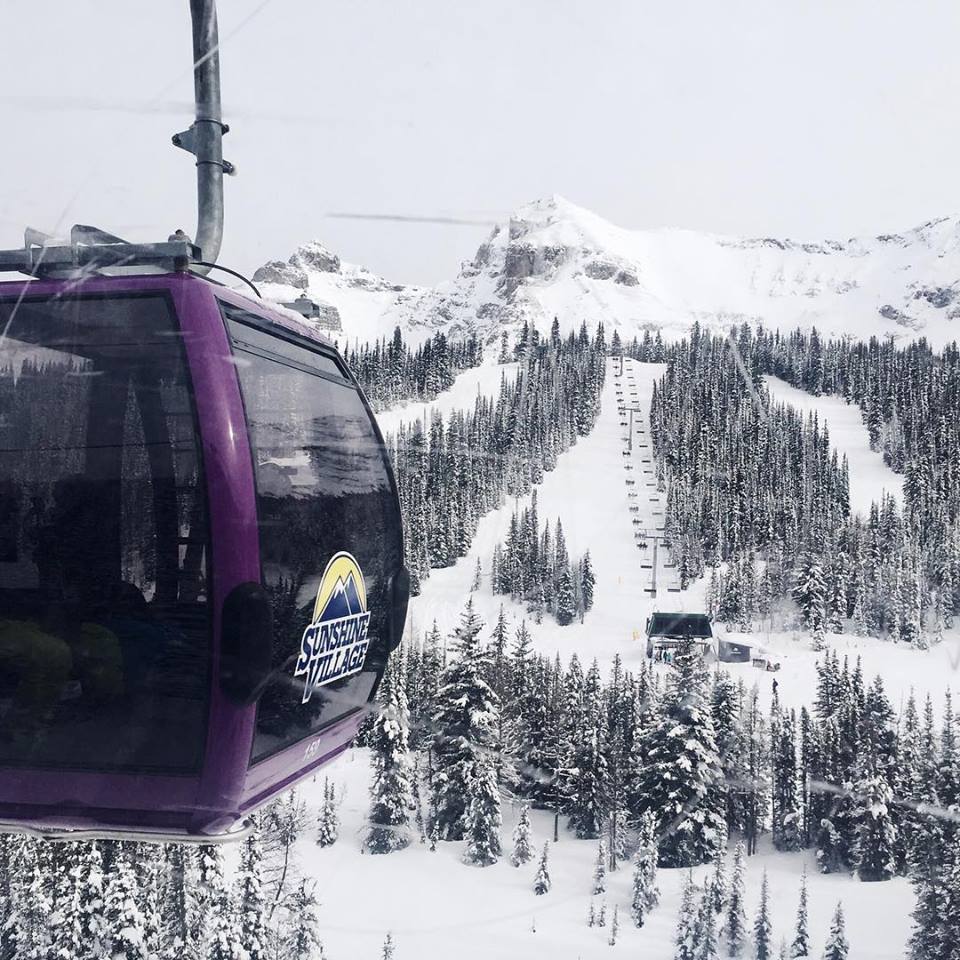
Sunshine Village is home to the highest ski area in western Canada at 8,954-feet. This “high and cold” mountain is able to stay open long after many resorts have closed up shop for the winter, including the steep terrain offered up on Delirium Drive.
Projected closing date: May 22, 2017
Elevation base/summit: 5,440 ft/ 8,954 ft
North facing slopes: 40%
Base depth lower/upper: 100″
# 9 Whistler Blackcomb – British Columbia, Canada
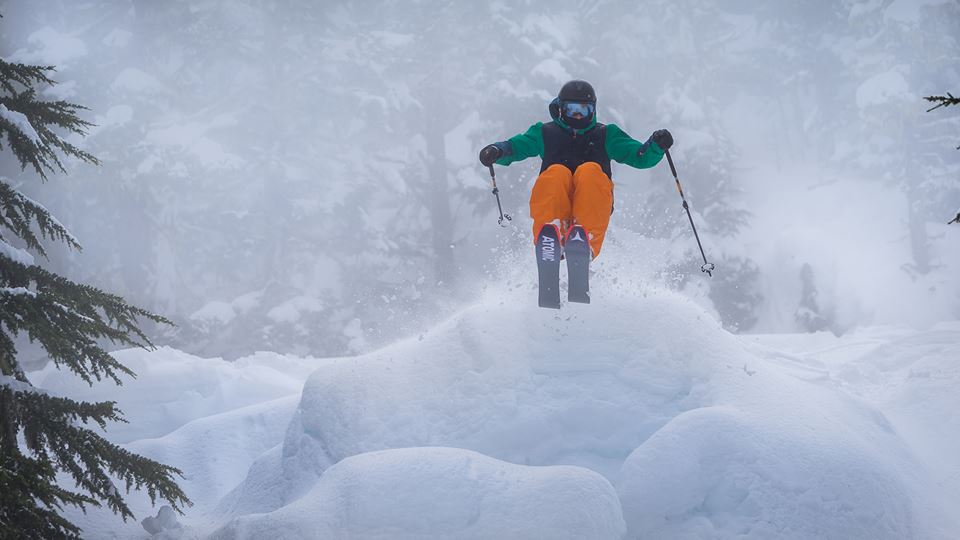
Credit: Whistler Blackcomb FB page
While Whistler typically closes down in late April, Blackcomb keeps things going deep into May. After the regular season closes, a mini summer-session of skiing is then offered on the Horseman Glacier, a permanent snow area that sits high on Blackcomb, in June and July.
Projected closing date: May 22, 2017
Elevation base/summit: 2,140 ft/ 7,494 ft
North facing slopes: 55%
Base depth lower/upper: 99″
#10 Mt. Hood Meadows, OR

The third area from Oregon to make this list, Mt. Hood Meadows averages 430+ in annual snowfall. This season they have already seen 470 inches!
Projected closing date: May 13, 2017
Elevation base/summit: 4,523 ft/ 7,300 ft
North facing slopes: 35%
Base depth lower/upper: 133-235″

My hood is 11000 feet tall or is the summit elevation just th Palmer lift
Big help, big help. And suervlatipe news of course.
Most important factor determining length of season? Population.
Most hills out East and some in the Western US operate until they run out of snow. Many make snow to build up a base to ensure they can run a longer season, knowing they have the population to support it.
Most smaller ski hills out West, or all hills in Western Canada, go until skier visits decline… often a few months before the actual snow melts out.
Mont Saint-Sauveur, Saint-Sauveur, QC will be open at least until May 14th.
You must have copied the Mammoth top elevation for Squaw. The top of Squaw’s highest lift is only about 8,700′ and the peak of Granite Chief (mountain, not lift) is 9,009 – not the 9,050 they claim as their top.
Mount Rose, Nevada has indicated they will be open until Memorial Day, May 29th, 2017.
Thank you, emcgrath, for the update.
I was so confused about what to buy, but this makes it unsedrtandable.